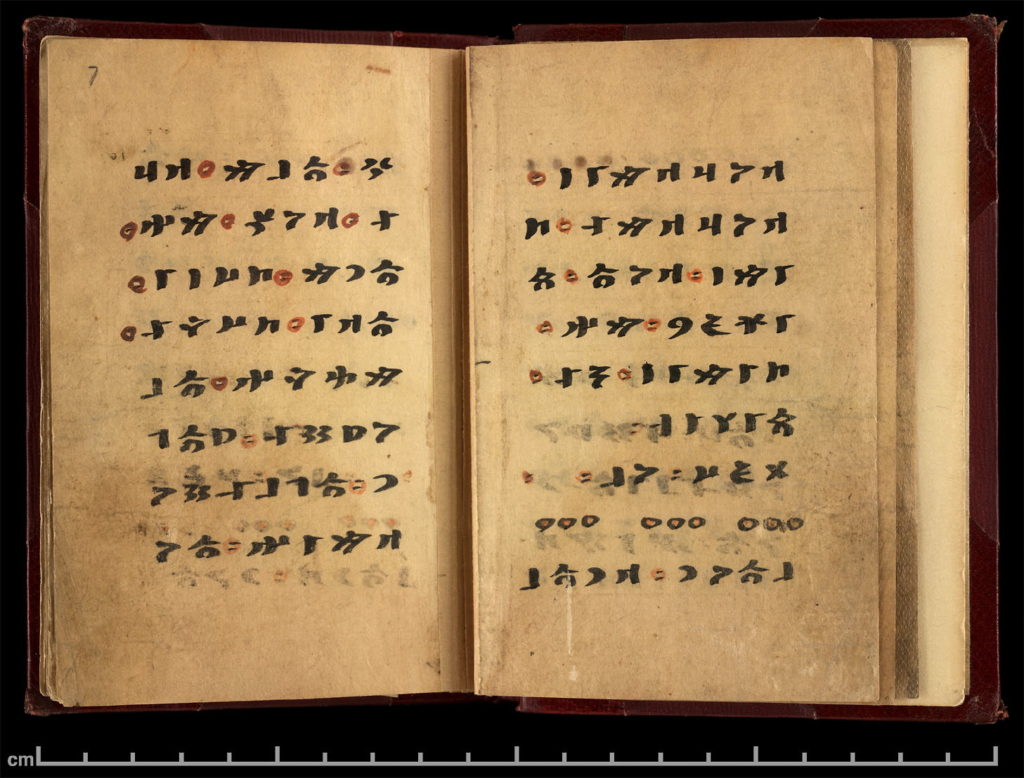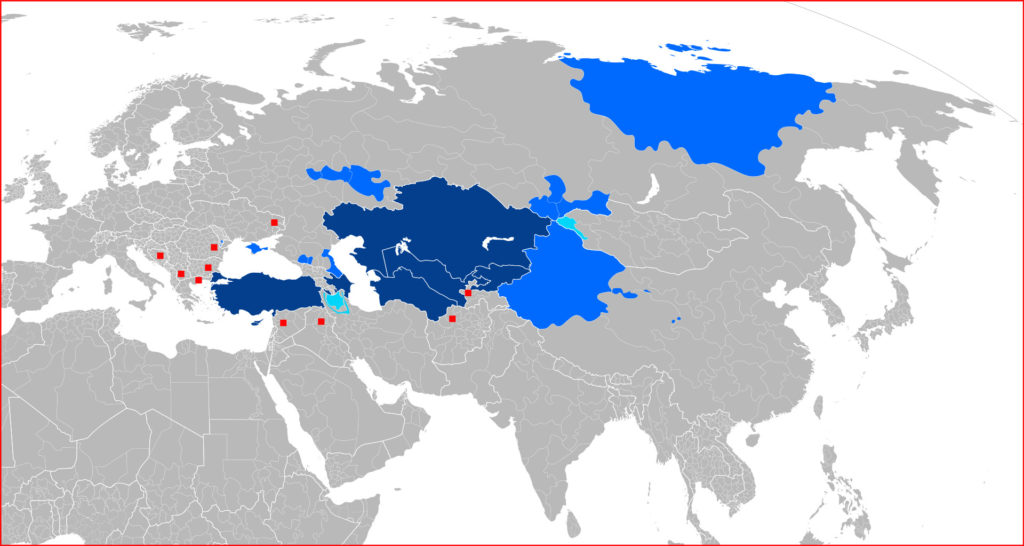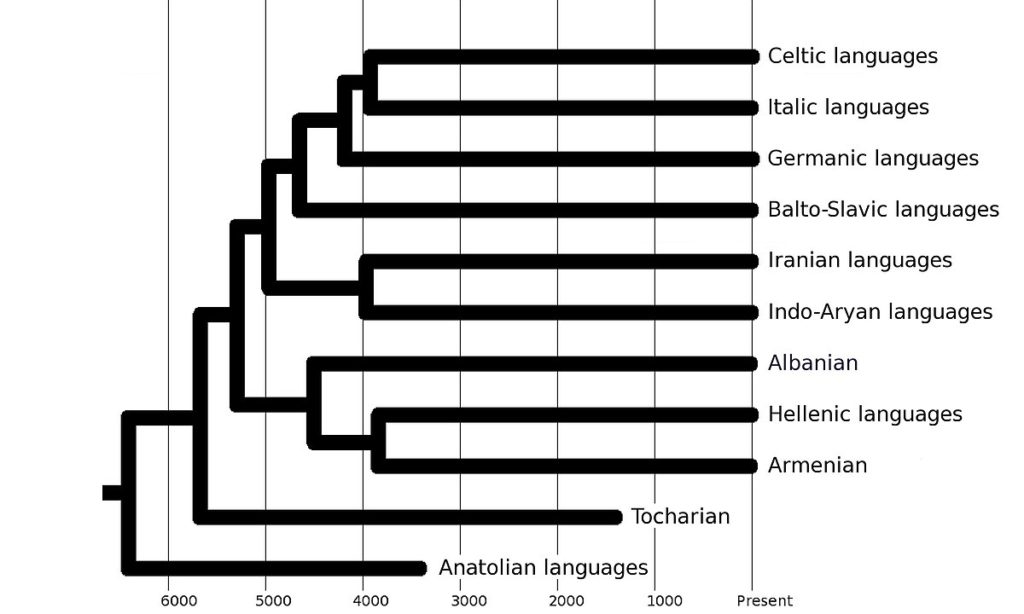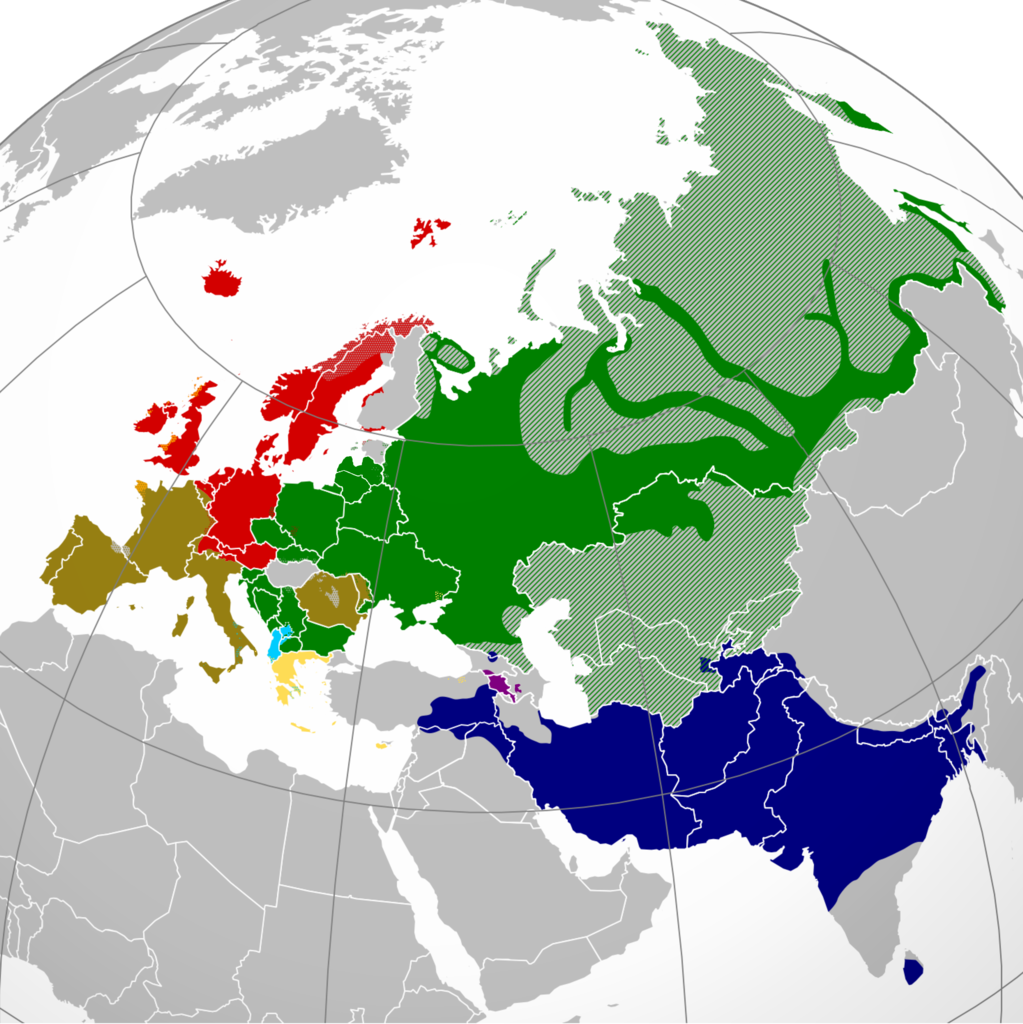In this article, I will explain the similarities and differences between Greek and Turkish and provide insights only a Turkish local would know.
I am a native Turkish speaker. I do not speak Greek, but my grandparents were native speakers of Cretan Greek, and I have a basic understanding of the Greek language.
Turkey is geographically and culturally very close to Turkey. In fact, as a Turkish living in the Aegean region, Greece is the only country that makes me feel at home.
Yet, Greek and Turkish languages are another story.
The Turkish Language is not similar to the Greek Language. Yet, Greek and Turkish have many common words due to centuries of cultural exchange.
Turkish and Greek languages have different grammar structures because they originated from different parts of the world. For this reason, their grammatical structures are different.
Greek is an Indo-European language, and Turkish is a Turkic and Altaic language that originated in Central Asia.
In this post, I will try to answer the most common questions about Turkish and Greek Languages.
Greek vs. Turkish Language
| Greek | Turkish | |
| Language Family | Indo-European Language | Turkic and Altaic |
| Similar to | Most Similar to the Armenian language More broadly similar to Indo-European Languages. | Closely related to Azerbaijani, Turkmen, Uzbek, Uyghur, Tatar, Kazakh, and Kyrgyz languages. More broadly similar to Mongolian, Korean, and Japanese. (Altaic Family Source) |
| Number of Speakers | 13.5 million native speakers. Source | 88 million native speakers Source |
If you are interested in learning the Turkish language, this is the book that most of my friends use. You can check the book on Amazon.
1. Similarities between Turkish and Greek Languages
One of the most popular academic studies on Turkish and Greek languages was conducted by Maria Damasi and Ahmet Nizam, lecturers at Thessaloniki University, Faculty of Balkan Languages.
These two lecturers wondered to what extent there is a similarity in the languages of the two countries. They published their book “To Kino Leksilogio tis Ellinikis ke tis Tourkikis” or in other words, “Common expressions in Greek and Turkish”.
According to the results of this research, there are 1200 words of Greek origin in the Turkish language and 800 words of Turkish origin in the Greek language.
Academics additionally note that after the educational reforms in the two countries in the 19th century, common words decreased by below %10. Source
You can also check my articles on the Turkish language’s relation with Arabic and Persian (Iranian Languages).
1.1. Loanwords between Turkish and Greek
Let’s now look at some similar examples of Turkish and Greek words.
| TURKISH | GREEK | ENGLISH MEANING |
| zambak | ζαμπάκι [zambaki] | lily |
| yolcu | γιολτζής [yoltzis] | passenger |
| yıldız taşı(safir) | γιαλδίζ-δασί [gialdiz-dasi] | sapphire |
| yakut | γιακούτι [yakuti] | ruby |
| araba | αραμπάς [arambas] | car |
| esnaf | εσνάφι [esna] | small business owner |
| davacı | δαβατζής [davtzis] | plaintiff |
| elçi | ελτσής [eltsiz] | ambassador |
| eğlenmek | εγλενδίζω [eglendizo] | To have fun |
| yatak | γιατάκι [yataki] | bed |
| alışveriş | αλισβερίσι [alisverisi] | shopping |
| yedek | γεδέκι [yedeki] | Spare part |
| dürbün | δουρμπίνι [durmbini] | binoculars |
| kahve | καφές [kafes] | coffee |
| maden | μαδένι [madeni] | mine |
| sincap | σεντζάπι [sentzap] | squirrel |
| mangal | μαγκάλι [mangali] | barbecue |
Greek writer Babiniotis’s dictionary “Leksiko tis Ellinikis Glossas’ published in 2012, states that the Greek language has 444 English, 519 French, 867 Italian, and 630 Turkish words. Source
Other sources claim much bigger numbers, and the number of loanwords between Turkish and Greek is disputable.
Yet, one thing to note is that Turkish is one of the major languages that affected Greek Languages.
2. Differences between Turkish and Greek Languages
Turkish and Greek languages are both quite distinct languages because they evolved in different regions of the world.

2.1 Origins of the Turkish Language
Linguistically, Turkish is closer to Azerbaijani (Azeri Language) and other Turkic languages. Turkish is not close to the Greek language because their roots are different.

The language most similar to Turkish is the Azeri language (the language of Azerbaijan).
Azeri and Turkish are mutually intelligible and can be identified as different dialects of the same language.
Azeri and Turkish belong to Turkic Languages, which have different dialects spoken by 108 million people.
Just a fun fact about the Turkish Language, the Turkish language is grammatically closer to Hungarian, Finnish, Mongol, Korean, and Japanese Languages.
The Istanbul Dialect of the Turkish Language is the official language of Turkey. Please read my post about the Turkish Language and its origins. You also check these posts to learn more about Turkic Languages and similar languages to Turkish.
2.2 Origins of the Greek Language

Greek is most similar to Armenian and Indo-Iranian languages.
Greek is theorized to be related to Armenian and Indo-Iranian languages because these languages share some vocabulary and grammatical features.
Yet, Greek is a distinct language among Indo-European Languages.
As a Hellenic Language, Greek is not mutually intelligible with Armenian and Indo-Iranian languages or any other language.

3. Is Turkish easier than Greek?
The difficulty of learning these languages will depend on your native language and your native language’s grammatical similarity with Greek or Turkish.
If you are a native speaker of (Indo-European Languages) English, French, or Persian, the Greek language is easier to learn than Turkish.
The Greek Alphabet is unique, and you need to get used to it before learning the language.
On the other hand, the Turkish Alphabet is very easy to read and has no irregularities when reading like English.
Most Turkish letters are read the same way as Latin, Spanish, and Italian alphabets. You can learn to read Turkish easily in an hour by learning some small rules.
Both languages have unique accents, idioms, and cultural richness. For these reasons, both languages will take effort to learn.
Check my guides Languages Spoken in Turkey and Istanbul, to learn more about languages spoken in Turkey.
4. Is Greek spoken in Turkey?
Since Greece used to be a part of the Ottoman Empire, people may wonder if Greek people live in current-day Turkey or how many people speak Greek.
Today, it is estimated that there are around 4.000 native Greek speakers in Turkey. Generally, these people live in Istanbul or the islands of Gokceada and Bozcaada.
This number only includes Greek native speakers born in Turkey. Ethnic Turkish native Greek speakers who migrated from the Greek-ruled Northern Thrace to Turkey are not included.
Additionally, Romeyka (an ancient Greek Dialect) is spoken in Northeast Turkey among the indigenous Turkish population.
Greece and Turkey agreed on population exchange after the Turkish Independence War in 1923. The number of Greek speakers in Turkey is very low because of the population exchange.
Greeks living in Turkey and Turks living in Greece were displaced as a result of this agreement. My grandparents came to Turkey from the island of Crete at that time.
In 1923, Turkey’s population was 12.4 million, and Greece had a population of 5 million. Each country nearly sent %10 of its population to the other country.
1.2 million Greeks left Turkey and resettled in Greece, and half a million Turks migrated to Turkey from Greece.
Suggested Reading: What Do Turkish People Look Like? With Pictures and History
ALL MY ARTICLES ABOUT TURKISH LANGUAGE – (Click on the title to read)
Origins of the Turkish Language – A Native Speaker Explains
Languages Similar to Turkish – Explained by a Native Speaker
What Languages Do Turkish People Speak?
What Languages are Spoken in Istanbul?
Turkic Language Family – A Turkish Explains
Turkish vs Persian (Farsi) Language: Similarities and Differences


“I believe Greece and Turkey have similar cultures”
with all respect, you wrongly believe.
Greek cuture is mostly a Southern European culture, closely associated with italian and Iberian, and to a lesser extend Balkan cultures. Turkish culture is West Asian, with a lot of Central Asian, Levantine, Persian and Caucasian influences, but technically nothing European
The two cultures are faaaar from being similar
“Turkish locals living in the West part of Turkey (like me) feel closer to Greece.”
So, to add something to the previous, is the clock of Izmir, with all the Oriental Archs in its architecture, or the grand bazaar of Istanbul, anything similar to what you can find in Greece?
Let me clarify.
My ancestors are from the island of Crete and Bulgaria. Many Turks have origins in the Balkans and migrated to Western Turkey after the wars.
This is why many Turks culturally fell closer to the Balkans, but Turkish in the essence.